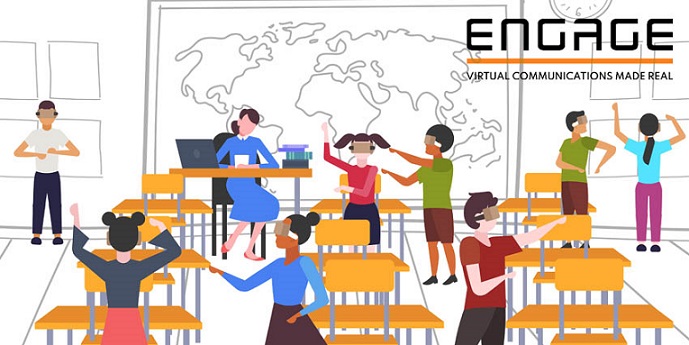
LONDON, UK: ENGAGE XR Holdings Plc, a virtual reality (VR) technology company, announced that its partner, VictoryXR, has published the below release regarding the launch of ten metaversities in the US this fall.
The partnership was funded by Meta Immersive Learning, an arm of Meta which is investing to help develop the next generation of metaverse creators, with each campus built by VictoryXR on Engage XR’s proprietary software platform.
Metaverse education is taking hold at American colleges and universities in a big way this fall. This fall’s cohort finds some big names planning to roll out digital twin campuses.
Each school will roll out a digital twin, replica campus for students to attend whether they are on campus or learning remotely. In addition, each student will receive a Quest 2 virtual reality headset for use during the course they are taking. Finally, courses will be synchronous, or multi-student, as if they were attending class on a physical campus.
“When the history of metaverse education is written, these are the schools that will be known as the metaverse pioneers,” said Steve Grubbs, VictoryXR CEO. “Remote learning is growing and these schools have decided to look for something better than a Zoom class.”
The partnership was funded, in part, by Meta Immersive Learning (NASDAQ: FB). Meta will provide Quest 2 headsets during the project on each campus as well as funding for the digital twin buildouts. Each campus is built by VictoryXR on the EngageVR platform (LON: EXR).
The List of Universities and Colleges Include one veteran school and nine new metaversities:
- Morehouse College
- University of Kansas School of Nursing
- New Mexico State University
- South Dakota State University
- West Virginia University
- University of Maryland Global Campus
- Southwestern Oregon Community College
Three additional metaversities will be released in May. “More than any learning innovation I have been involved with, Morehouse in the Metaverse has made the biggest difference for the students I teach,” said Dr. Muhsinah Morris, associate professor at Morehouse College.
Using either a virtual reality headset, or a PC, students will enter the metacampus with other students and their professor. There, they will engage in classroom experiences like delving into human anatomy, history field trips through a time machine or astronomy on a starship.
“Just like the real world, students will be able to break into small groups and work on projects together, no matter their physical distance,” said Grubbs, “but unlike the real world, they will be able to shrink to the size of Ant-man and tour the human body. It’s no wonder student retention is so much greater.”
Last year, accountancy firm PwC published research on the advantages of using VR for learning*. The findings showed that 40% of VR learners are more confident in applying what they’ve been taught and 150% more engaged. In addition, VR was found to be 400% faster than classroom-based learning.